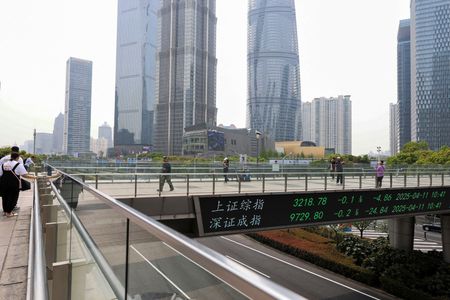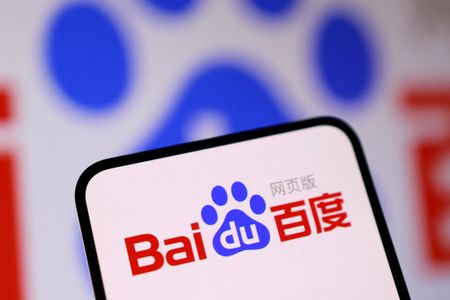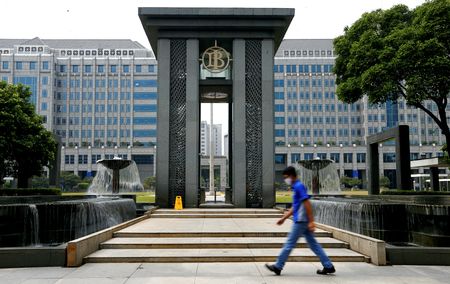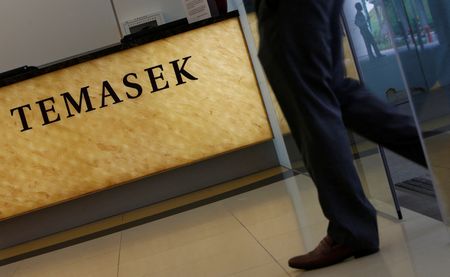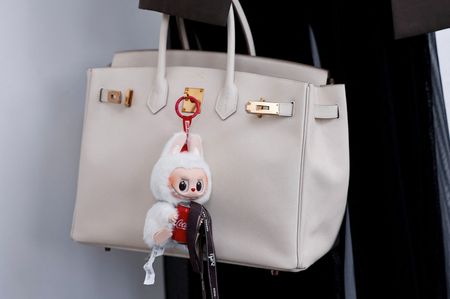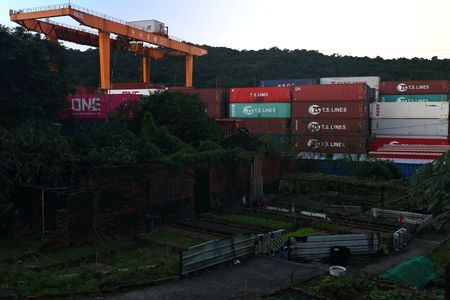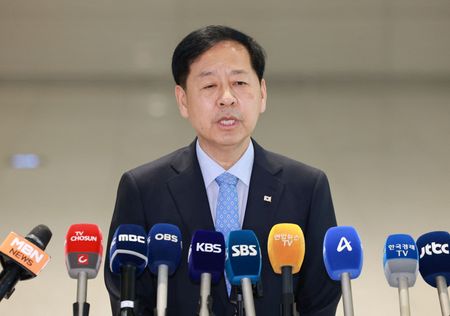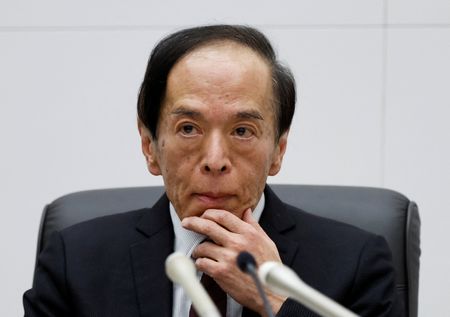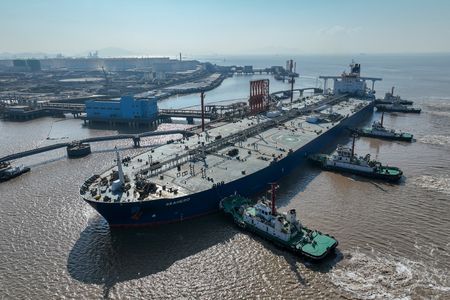(Refile to fix Doug Coulter job title in paragraph 12)
By Kane Wu
HONG KONG (Reuters) -Secondary trades of private equity assets in China are poised to accelerate after a robust first half, with Canada’s No.2 pension manager and a China-focused buyout fund among those looking to divest such assets worth potentially billions of dollars, sources said.
A private equity (PE) secondary trade refers to the buying and selling of PE fund portfolios or their direct shareholdings in private companies, allowing investors to exit their positions outside the typical investment cycle.
The steep discounts being offered by the selling funds are expected to attract buyers who have confidence in China’s longer-term economic prospects, industry sources said. Many of the selling funds have to repay their own investors and are struggling to find trade buyers or float the assets on public markets due to economic headwinds and geopolitical risks.
Canada’s Caisse de dépôt et placement du Québec (CDPQ), for example, which stopped making PE investments in China two years ago, is considering selling about $2 billion worth of assets via secondary trades, most of which are from China, said two people.
China-focused buyout fund CDH Investments is also aiming to raise a multi-asset continuation vehicle to allow some investors to cash out from its existing fund’s portfolio, they said.
A continuation fund is a new investment vehicle created by a PE firm to transfer holdings of some existing investments, which allows investors to maintain or exit their stakes in the assets.
CDPQ declined to comment. A CDH spokesperson did not respond to a Reuters request for comment.
The people, who are familiar with the matter, did not wish to be identified as the talks are confidential.
A total of 731 secondary trades involving yuan-denominated funds were completed in the first half of 2025, hitting a record 77.3 billion yuan ($11 billion) and logging an 89% year-on-year growth, according to Chinese data provider ZERONE.
Data for secondary trades involving U.S. dollar-denominated assets in China is not publicly available, industry sources said.
It is a good time for investors who have a long-term view on China to buy quality assets on the cheap with reduced regulatory risks, global alternative asset investor LGT Capital Partners said in an industry insight white paper published in July.
“We expect the majority of capital we are going to deploy in China in the short to medium term to be via secondaries,” Doug Coulter, LGT’s Hong Kong-based partner and co-head of Asia Pacific private equity, told Reuters.
SWELLING SUPPLY
LGT announced in June that it was the co-lead investor in continuation vehicles worth a total of $500 million for a portfolio of 13 assets managed by China-focused venture capital fund IDG Capital.
LGT declined to disclose the discounts the assets were traded at.
Singapore sovereign wealth fund GIC also invested in IDG’s continuation vehicles, primarily buying shares of social media company Bytedance, said the two people.
GIC declined to comment. IDG did not respond to a Reuters request for comment.
Globally, secondary market deals have also hit record volumes, reaching $103 billion in the first half, according to a report by investment bank Jefferies, as the lack of capital distribution from IPOs and M&A deals fuels supply.
Quality China assets are being sold in the secondary market at 40%-50% discounts to net asset value (NAV), said Coulter. That compares with the roughly 10% to 20% discounts to NAV for U.S. assets in the secondary market, industry sources said.
The improved market sentiment in China should be conducive to PE secondary deals, industry sources said.
China’s onshore benchmark CSI 300 is up 7% so far this year, while Hong Kong’s Hang Seng Index is up 25%.
“We believe the sentiment of investors about China has generally improved,” said Mingchen Xia, managing director and co-head of Asia investments at investment management and advisory firm Hamilton Lane.
He said that “the softened geopolitical tensions and largely settled tariff negotiations” by some major economies should give some comfort to investors.
(Reporting by Kane Wu in Hong Kong; Editing by Sumeet Chatterjee and Muralikumar Anantharaman)

